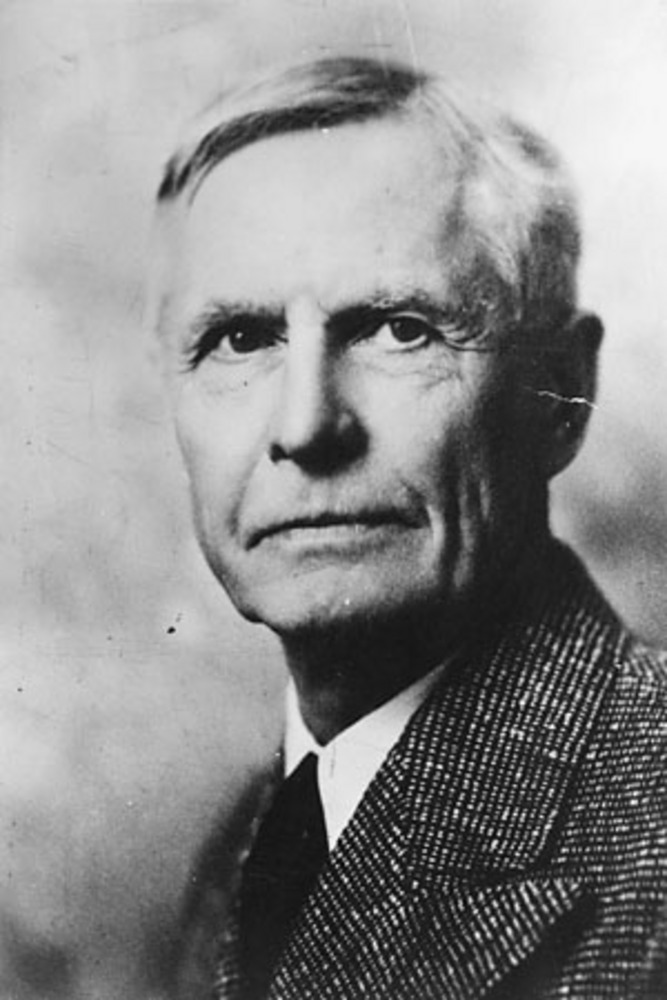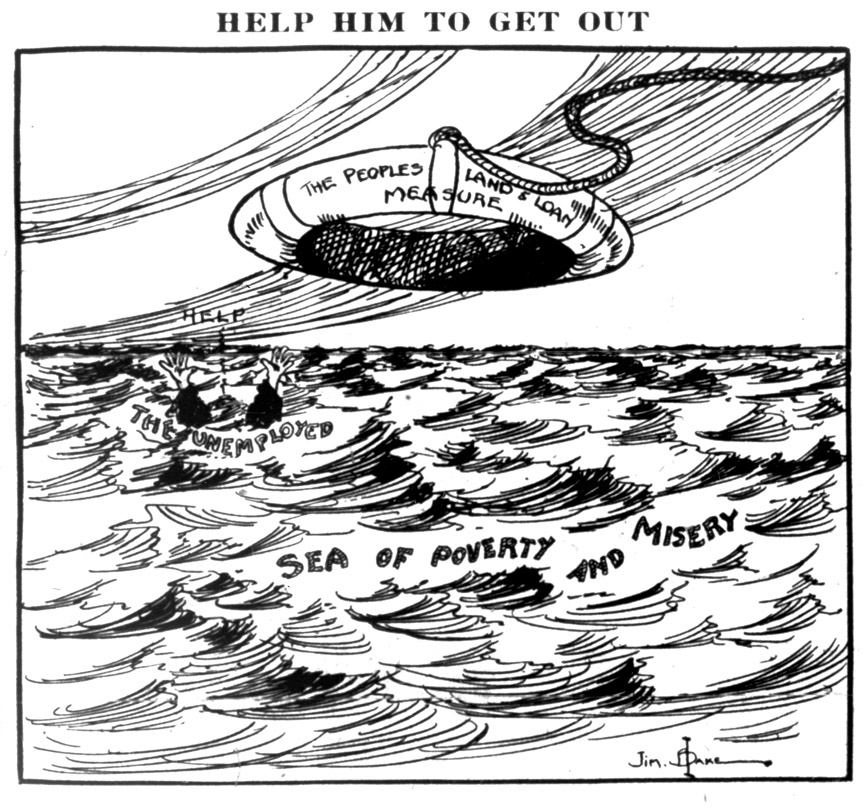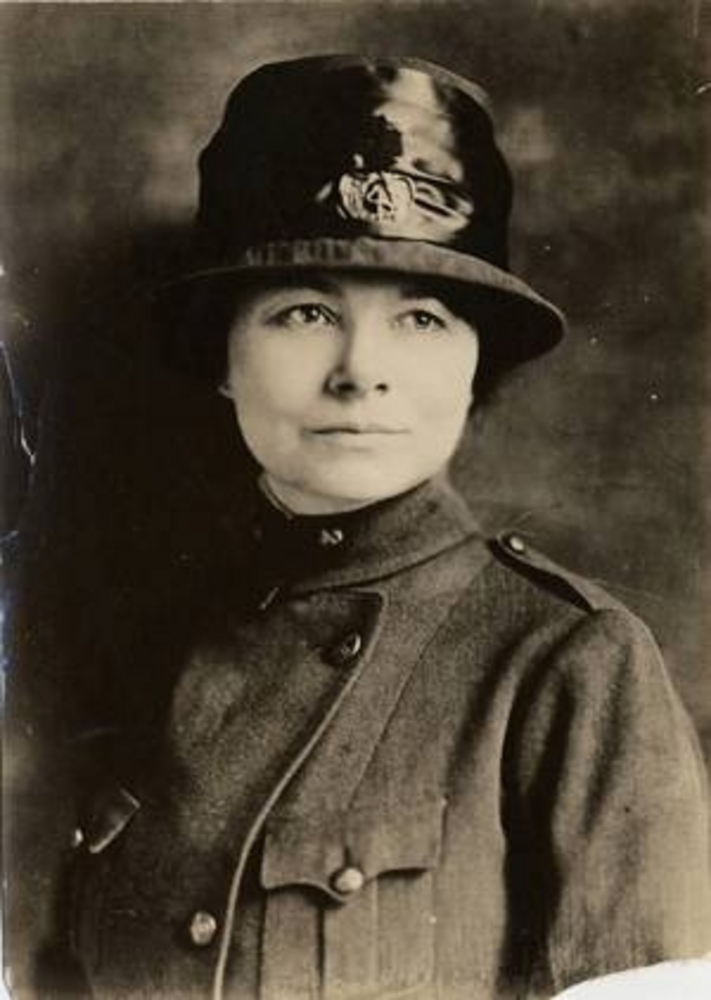William S. U’Ren wielded enormous influence on American politics and played a major role in the formation of governmental policies in Oregon. A quiet and determined behind-the-scenes political leader and reformer, he introduced and won over Oregon voters to a trio of important political measures late in the nineteenth and early twentieth centuries. For those achievements, U'Ren became known as the Oregon Father of the Initiative, Referendum, and Recall.
U'Ren's origins and early years provide few hints of his accomplishments. Born on January 10, 1859, in Lancaster, Wisconsin, the son of Cornish immigrant parents, William Simon U’Ren followed the nomadic life of his blacksmith father and devout Methodist mother. After early schooling in Wisconsin, Nebraska, and Wyoming, he landed in Colorado in 1876, where he worked as a blacksmith and read law at night. After a few years working as a lawyer and journalist, he was advised to seek a warmer, dryer climate to address his tuberculosis. When short periods living in Hawaii and California proved unsatisfactory, he moved to Oregon in 1889.
On his way from California to Oregon, U'Ren encountered Henry George's pathbreaking book, Progress and Poverty (1879). The provocative volume advocated a "single tax" that favored the working class, especially farmers, and curbed the monied classes. The Gilded Age, George wrote, had allowed robber barons to benefit from escalating land prices, unearned profits that would be severely reduced under the single tax. His landless family and its unsuccessful attempts to "make it" undoubtedly motivated U’Ren to buy into George's idea. "I went just as crazy over the single tax idea as any one else did,” he told a journalist later. “I knew I wanted single tax, and that was about all I did know."
Nothing came easy for U'Ren after he arrived in Oregon. He was sickly and jobless, but the orchardist Lewelling (Luelling) family gave him a job and a place to live. They also introduced him to activists who were trying to reform Oregon politics. Reading James W. Sullivan's Direct Legislation by the Citizenship through the Initiative and Referendum (1892), U'Ren soon realized that he needed the tools of direct democracy—the initiative and the referendum—to give power to the people and enact the single tax.
U'Ren was also introduced to the concept that political leaders directed best from the back of the room, and he nearly always served as a secretary of organizations, not as president or director. From 1892 to 1896, he was increasingly involved in political reform groups, particularly the Populists, and was named secretary of the Populist Party. In those organizations, U'Ren energetically advocated for what later was called the Oregon System.
The most important segment of the system was the initiative, which allowed eight percent of the state's voters to place a measure on the ballot. Another segment, the referendum, allowed five percent of voters to place a legislative enactment on the ballot for voters to sustain or reject. In the mid-1890s, U'Ren pushed hard for both measures, believing they would help keep power in the hands of the people rather than under the control of a bureaucratic and sometimes corrupt legislature.
In 1896, U'Ren was elected as a Populist to the Oregon House, the only elective office he ever held. The following year, he helped engineer the "Hold-Up Legislature" in which Populist representatives and their supporters refused to show up when the legislature rejected several reform measures, including the initiative and the referendum. Their absence kept the House from being called into session. Salem lawmakers passed the two reforms in 1899 and 1901, and the Oregon voters did the same by a large margin in 1902.
U'Ren then turned his attention to the recall and the direct election of United States senators. The recall, which passed in 1908, permitted voters to remove a person from office who was guilty of poor leadership, malfeasance, or extreme political partisanship. Then, after a series of compromises and political sleights of hand, legislation was passed that all but allowed voters to elect their senators. In 1917, the 17th Amendment gave all voters the right to popularly elect U.S. senators.
The never-stop U'Ren then turned to the single tax. Despite his persistent support for the measure, however, Oregon voters nearly always soundly rejected the single tax between 1908 and 1916. Only in 1910 did voters pass compromise legislation to support a part of the larger single-tax measure—and recalled it shortly thereafter.
By 1901, U'Ren had married Mary Beharrell, a widowed elementary school teacher, and had formed a law partnership with Christian Schuebel. The U'Rens moved from Oregon City to Portland in 1914, which ended the partnership and put U'Ren in closer touch with workers and labor unions.
After 1920, U'Ren continued to practice law but was more an onlooker than a participant in politics. Previously in touch with legislators, governors, and presidents Theodore Roosevelt and Woodrow Wilson, he took no major part in reactions to the Ku Klux Klan or the presidential administrations of three Republicans. During the next decade, however, he spoke out against President Franklin Roosevelt and the New Deal, seeing the president as too dictatorial and the government as out of control.
U’Ren died in Portland on March 8, 1949. His holy trinity of legislative measures—the initiative, the referendum, and the recall—continue to be central to understanding the state's political organization.
-
![]()
William S. U'Ren, 1946.
Oreg. Hist. Soc. Research Lib., CN 01831
-
![]()
Political cartoon on the Oregon System, by William Schwarz, 1912.
Oregon Historical Society Research Library, OrHi 11457
-
![]()
William S. U'Ren defending members of the Communist Party, Portland, 1920.
Oregon Historical Society Research Library, CN 009663
Related Entries
-
![Populism in Oregon]()
Populism in Oregon
Populism refers to a political discourse that defines the interests of …
-
![Single Tax]()
Single Tax
Virtually unheard of since World War I, the single tax was arguably the…
-
Woman Suffrage in Oregon
The campaign to achieve voting rights (also called suffrage or the fran…
Related Historical Records
Map This on the Oregon History WayFinder
The Oregon History Wayfinder is an interactive map that identifies significant places, people, and events in Oregon history.
Further Reading
Etulain, Richard W. William S. U'Ren: Oregon Father of the Initiative, Referendum, and Recall. Portland, Ore.: Chaparral Books, 2020.
Johnston, Robert D. The Radical Middle Class: Populist Democracy and the Question of Capitalism in Progressive Era Portland. Princeton, NJ: Princeton University Press, 2003.
Weinstein, Esther G. "William Simon U'Ren: A Study of Persistence in Political Reform." Ph.D. diss, Syracuse University, 1967.
Woodward, Robert C. "William Simon U'Ren in an Age of Protest." MA thesis, University of Oregon, 1956.





